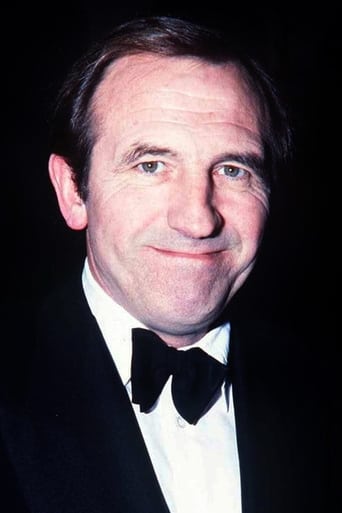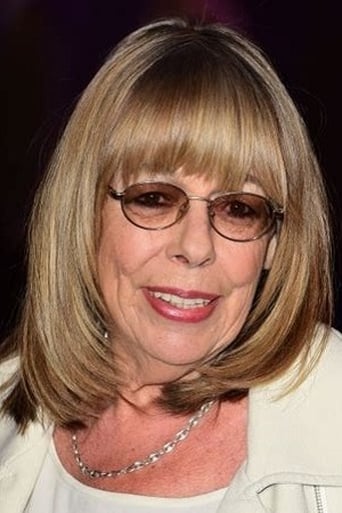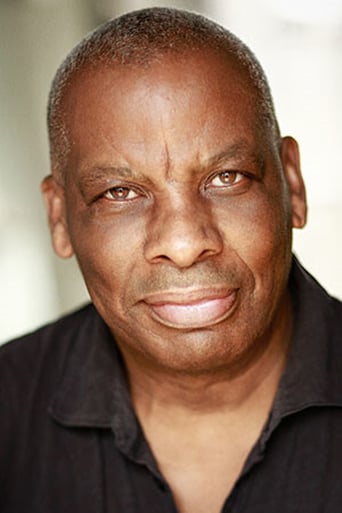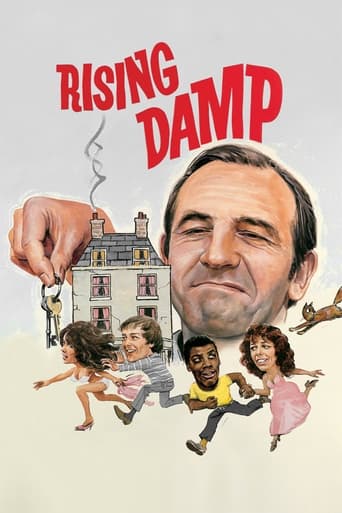
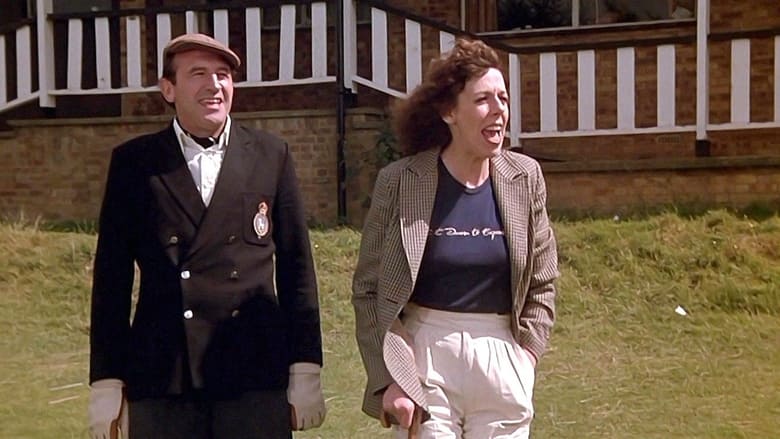
Rising Damp (1980)
Stingy landlord Rigsby manages to scam his lodgers John, an art student, and Philip, an African medical student, making both pay for a room they must share. However Rigsby's favorite lodger, Miss Jones, flirts with Philip rather than him, despite his pitiful attempts at seduction.
Watch Trailer
Cast


Reviews
Absolutely brilliant
If you like to be scared, if you like to laugh, and if you like to learn a thing or two at the movies, this absolutely cannot be missed.
There is, somehow, an interesting story here, as well as some good acting. There are also some good scenes
The acting in this movie is really good.
Rising Damp has always been regarded one of ITVs better sitcoms of the 1970s even though the series was full of casual racism.As soon as the series ended, work started on a feature film spin off and this is the dismal effort.Of course the producers were not helped by the premature death of actor Richard Beckinsale who played one of the main characters. He is replaced by Christopher Strauli who plays a new character, art student Alan and a new tenant in Rigsby's house.The main part of the film is seedy Rigsby attempting to keep fit as he is envious of African chief Philip's success at the rugby field. Rigsby hopes if he can beat Philip at boxing he can win the affections of Miss Jones. (Ironically Leonard Rossiter who died at a relatively young aged was a top ranked amateur squash player.)The final part of the movie is Denholm Elliott playing suave new tenant Seymour who may be not all he seems to be but Rigsby thinks he is a gent because Seymour went to public school. Then Seymour starts to woo Miss Jones much to Rigsby's chagrin.The film is episodic because it is three episodes stitched together. I think Henry McGee played the part in the television show better than Elliott here because his character revealed a nasty vile side, especially when he talked to Philip.The film has several dream sequences including a Grease pastiche and a reference to the Cinzano ads which Leonard Rossiter was famous for at the time with Joan Collins.The film just fails to capture the essence of the television sitcom, it comes across as crass and unfunny. Despite Rossiter doing sterling work as Rigsby, the script and direction were poor.
The film version of 'Rising Damp' came out two years after the television series ended. Like many fans I duly went along to the cinema when it opened. I came away bitterly disappointed. Eric Chappell could not have spent very much time writing the script; most of it is rehashed ideas from old episodes. At the time of the film's release, the 'Rising Damp' series was still being repeated regularly on I.T.V. so the public was being asked to pay to see something they'd seen already. At least the 'On The Buses' movies boasted original screenplays.Secondly, Richard Beckinsale had died the year before, so they eliminated the character of 'Alan' as a mark of respect, substituting art student 'John', played by Christopher Strauli of 'Only When I Laugh' fame. It simply wasn't the same.As another poster has pointed out, Rigsby's boarding house looked nothing like the one used in the series, being bigger and altogether cleaner.Director Joe McGrath was one of the directors who worked on the original 'Casino Royale', a film steeped in surreal humour. 'Rising Damp' also has its share of 'Walter Mitty' style fantasy sequences, such as the 'Saturday Night Fever' parody. Personally, I found them horribly out of place. A case of 'over-egging the pudding'.On the plus side, Leonard Rossiter is as magnificent as ever as the seedy 'Rigsby', as are Frances De La Tour as 'Ruth' and Don Warrington as 'Philip. Its just a shame the film isn't worthy of their talents.When Rossiter died in 1984, it was shown by I.T.V. as a tribute, with its final scene - showing Rigsby laying prostrate at the foot of the stairs - removed in the interests of good taste.
"Rising Damp" is now generally regarded as the finest sitcom produced by ITV, the BBC's main commercial rival, during its 50 years on air. Granted, that is not a hard title to win. But the claustrophobic saga of a boarding house where a stingy, nervy, clumsily lecherous landlord, two students and a fluttery but oddly alluring spinster play out an endless round-dance of mutual attraction is one of the perennial, timeless joys of British TV.Like most hit comedies of the 1970s, "Rising Damp" earned a big-screen adaptation. The main cast stayed intact, except that Christopher Strauli subbed for the late Richard Beckinsale. Unfortunately Joe McGrath, a comedy specialist used to altogether broader material (Peter Cook and Dudley Moore, The Goons) directed. Farce is played up at the expense of quieter and subtler pleasures. McGrath, who helmed "The Magic Christian" and "The Great McGonagall", goes for a quick fire approach which Eric Chappell's screenplay-- like so many of these filmed sitcoms, it smells of three TV episodes scrambled together-- does not inhibit. Feeling one must open up the action and exploit a marginally larger budget, Chappell lets the film slip away too much from the house. To aficionados, even seeing the back garden and the street are a little shocking. However, scenes in pubs and restaurants echo the original, and the chief pleasure, Leonard Rossiter as Rupert Rigsby, is undimmed. Some well-loved schticks, such as Rigsby blowing in Miss Jones's ear after being told it's an erogenous zone, are reprised.Rossiter broke the rules of modern screen acting. He mugged, twitched, grimaced, muttered semi-audibly and shamelessly hogged the camera, instead of underplaying stone-facedly and letting his confreres share the work. Yet he gets away with it every time, simply because Rigsby is a towering character in the great tradition of British "downer" comedy: the frustrated middle-aged male fantasist who is not quite up to living in the real world. That line began with Will Hay and ran through Hancock, Harold Steptoe, Captain Mainwaring and Basil Fawlty to Rigsby, with Derek Trotter and Victor Meldrew to come.Guest star Denholm Elliott is a smooth ex-RAF conman after the gorgeous Miss Jones's modest savings. He may seem like another cinematic concession, but he is not unlike Peter Bowles's theatrical charmer of a lodger in the series. Elliott's underplaying is in fitting and masterful contrast to the spluttering sycophantic Rigsby. Don Warrington, the black student "chief's son with ten wives" patronised and envied by Rigsby, is gloriously suave, though victim of a disconcerting plot twist at the end.This potted version is not the best of its breed, but for condensing Rossiter's tour de force it is worth catching.
Rigsby rents rooms in his house to Miss Jones and African chief Philip. When a room becomes available in his house he gets art student Alan to share Philip's room. This causes tension in the house as Rigsby continues to compete for Miss Jones' affections. When they see Philip on the rugby field a fitness craze goes through the house leading to a boxing match between Rigsby and Philip. With Philip and Alan sharing the upper room Rigsby rents the middle room out to English gentleman Seymour who may or may not be who he claims, leading to more tension as Miss Jones begins to fall under Seymour's spell.This is essentially three episodes worth of stories rolled into a film - the first episode is the new tenant moving into the house, the second episode is the all the fitness thing leading to the boxing match, the third episode is the Seymour incident. In fact each lasts about 30 minutes, although they are nicely rolled into each other so it's not as clear cut as three separate strands. The stories are about as good as the TV show was - so if you like that then you'll probably like this. The best bit is really the final 30 minutes due to Denholm Elliott's presence but there is 1970's style fun to be had with the other sections.From the horribly disco theme song, you know where you are - happily the racist jokes aren't as bad as other 70's sitcoms but it's still there. It's not too offensive because Philip is allowed to rise above the stereotypes and only Rigsby is the one who makes the jokes (and he's made to look stupid and backward). It's not really funny but it's quite amusing. The saving grace is Rossiter as Rigsby - he really is so good in the role to the extent that he rises above the material and makes it better than it is. De la Tour is also good in her well rehearsed role and Don Warrington brings a lot of dignity to the black character who could easily just have been a punching bag for racist jokes. "Only When I Laugh's" Christopher Strauli makes a good addition to the house and Elliot brings a great deal of class to what is essentially a sitcom.Overall this isn't fantastic but it's amusing and entertaining. It does feel like three episodes rolled together but if you're a fan of the series then I guess that's not necessarily a bad thing.


